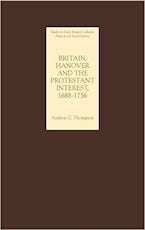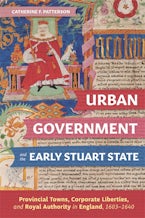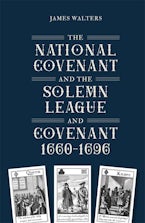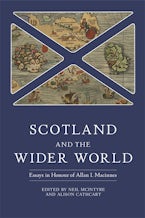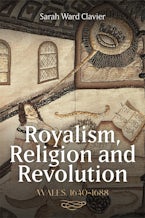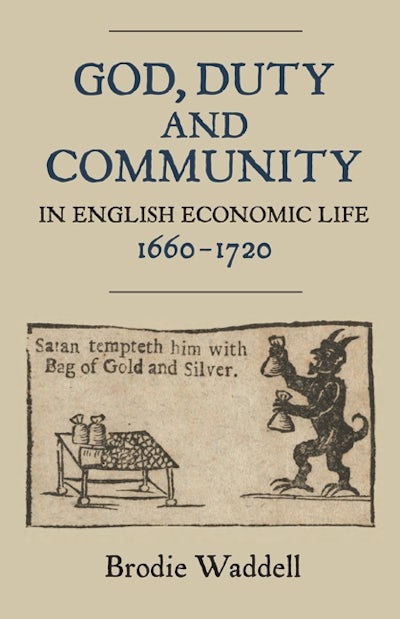
Title Details
288 Pages
23.4 x 15.6 cm
8 b/w illus.
Series: Studies in Early Modern Cultural, Political and Social History
Series Vol. Number:
13
Imprint: Boydell Press
God, Duty and Community in English Economic Life, 1660-1720
- Description
- Contents
- Reviews
An analysis of later Stuart economic culture that contributes significantly to our understanding of early modern society.
The English economy underwent profound changes in the seventeenth and eighteenth centuries, yet the worldly affairs of ordinary people continued to be shaped as much by traditional ideals and moral codes as by material conditions.This book explores the economic implications of many of the era's key concepts, including Christian stewardship, divine providence, patriarchal power, paternal duty, local community, and collective identity. Brodie Waddell drawson a wide range of contemporary sources - from ballads and pamphlets to pauper petitions and guild regulations - to show that such ideas pervaded every aspect of social and economic relations during this crucial period.
Previous discussions of English economic life have tended to ignore or dismiss the influence of cultural factors. By contrast, Waddell argues that popular beliefs about divine will, social duty and communal bonds remained the frame through which most people viewed vital 'earthly' concerns such as food marketing, labour relations, trade policy, poor relief, and many others. This innovative study, demonstrating both the vibrancy and the diversity of the 'moral economies' of the later Stuart period, represents a significant contribution to our understanding of early modern society. It will be essential reading for all early modern British economic and cultural historians.
BrodieWaddell is Leverhulme Early Career Fellow at the University of Cambridge. He has published on preaching, local government, the landscape and other aspects of early modern society.
The English economy underwent profound changes in the seventeenth and eighteenth centuries, yet the worldly affairs of ordinary people continued to be shaped as much by traditional ideals and moral codes as by material conditions.This book explores the economic implications of many of the era's key concepts, including Christian stewardship, divine providence, patriarchal power, paternal duty, local community, and collective identity. Brodie Waddell drawson a wide range of contemporary sources - from ballads and pamphlets to pauper petitions and guild regulations - to show that such ideas pervaded every aspect of social and economic relations during this crucial period.
Previous discussions of English economic life have tended to ignore or dismiss the influence of cultural factors. By contrast, Waddell argues that popular beliefs about divine will, social duty and communal bonds remained the frame through which most people viewed vital 'earthly' concerns such as food marketing, labour relations, trade policy, poor relief, and many others. This innovative study, demonstrating both the vibrancy and the diversity of the 'moral economies' of the later Stuart period, represents a significant contribution to our understanding of early modern society. It will be essential reading for all early modern British economic and cultural historians.
BrodieWaddell is Leverhulme Early Career Fellow at the University of Cambridge. He has published on preaching, local government, the landscape and other aspects of early modern society.
Introduction
God's Will: Judgement, Providence and the Prayers of the Poor
Oeconomical Duties: Patriarchy, Paternalism and Petitioning
Communal Bonds: Solidarity, Alterity and Collective Action
Conclusion: Rethinking Economic Culture
Bibliography
God's Will: Judgement, Providence and the Prayers of the Poor
Oeconomical Duties: Patriarchy, Paternalism and Petitioning
Communal Bonds: Solidarity, Alterity and Collective Action
Conclusion: Rethinking Economic Culture
Bibliography
"This is undoubtedly a successful and important book, not least because it is richly researched and highly suggestive." ENGLISH HISTORICAL REVIEW
"A well-written addition to scholarship on early modern English culture and economic relations. It stands on its own for its contribution to our understanding of 'moral economies' and communal solidarities, but it is equally valuable for its succinct summary and analysis of existing literature on this topic." JOURNAL OF SOCIAL HISTORY
"A stimulating and thoughtful introduction to early modern economic culture for a reader unfamiliar with the existing scholarship. He succeeds in his aim of demonstrating that the later Stuart era had a rich and important moral economy." REVIEWS IN HISTORY
"A valuable discussion of the persistence of moralized conceptions of material life in an era more celebrated for the contribution of a minority of intellectuals. Waddell's book is richly researched. He is to be congratulated for not simply challenging established narratives, but for making suggestions about how to replace them." H-ALBION
"A meticulous and well-written analysis." CHOICE
Hardcover
9781843837794
October 2012
£80.00 / $115.00
Ebook (EPDF)
9781782040385
October 2012
£24.99 / $29.95
Title Details
288 Pages
2.34 x 1.56 cm
8 b/w illus.
Series: Studies in Early Modern Cultural, Political and Social History
Series Vol. Number:
13
Imprint: Boydell Press


